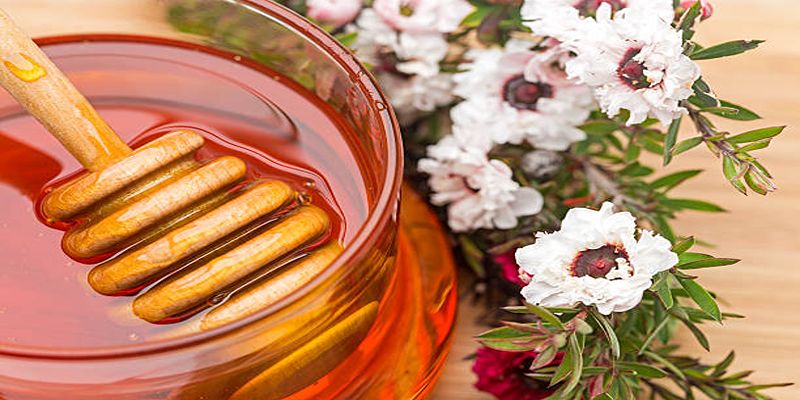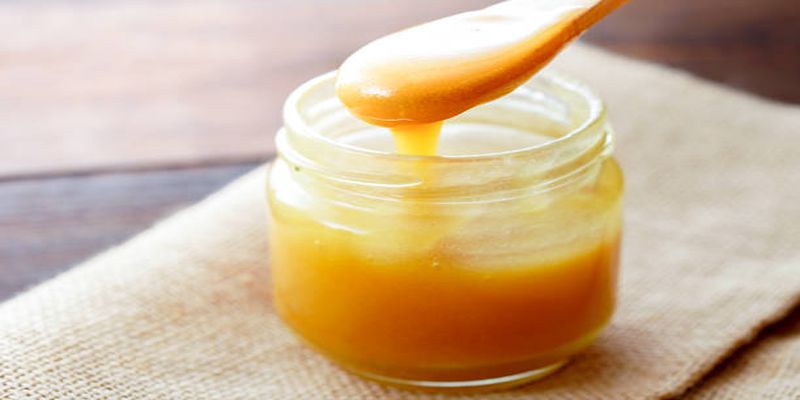What Makes Manuka Honey So Special? Exploring Its Unique Properties
Aug 22, 2024 By Korin Kashtan
Manuka honey, often hailed as a superfood, is not just any ordinary honey; it possesses unique properties that set it apart from its more common counterparts. Derived from the nectar of the Manuka tree (Leptospermum scoparium), native to New Zealand, this honey is renowned for its distinctive flavour and potential health benefits. The rich, dark colour of Manuka honey indicates a higher concentration of beneficial compounds, including methylglyoxal (MGO) and dihydroxyacetone (DHA), which contribute to its therapeutic properties. Beyond its delicious taste, Manuka honey is celebrated for its antibacterial, anti-inflammatory, and wound-healing effects, making it popular among health enthusiasts and researchers alike. This introduction sets the stage for a deeper exploration into what makes Manuka honey a coveted natural remedy and a staple in wellness practices.
What is Manuka Honey?

Manuka honey is a type of honey produced by bees that pollinate the Manuka tree, predominantly found in New Zealand and Australia. It is distinguished by its rich, dark colour and unique flavour profile, often described as earthy and herbaceous. Unlike regular honey, which primarily derives its antibacterial properties from hydrogen peroxide, Manuka honey's potency is attributed to the presence of methylglyoxal (MGO), a compound that exhibits strong antimicrobial activity.
This honey is graded based on its MGO content, with higher levels indicating greater therapeutic potential. As a result, Manuka honey is not only used as a natural sweetener but also as a remedy for various ailments, ranging from sore throats to skin infections. Its versatility and effectiveness have made it a sought-after product in both culinary and medicinal applications.
Unique Compounds in Manuka Honey
Manuka honey is particularly noted for its unique compounds that contribute to its exceptional health benefits. Among these, methylglyoxal (MGO) stands out due to its powerful antibacterial properties, which can help combat a variety of bacterial infections.
Another significant compound is dihydroxyacetone (DHA), which is found in the nectar of the Manuka flower and is a precursor to MGO. The presence of these compounds not only enhances the honey's therapeutic potential but also its overall flavour and nutritional value. Additionally, Manuka honey contains antioxidants, vitamins, and minerals, further bolstering its reputation as a potent natural remedy.
Health Benefits of Manuka Honey
Antibacterial Properties
One of the most celebrated health benefits of Manuka honey is its strong antibacterial properties. The high concentration of methylglyoxal (MGO) is responsible for its ability to inhibit the growth of various bacteria, including those that are resistant to common antibiotics. This makes Manuka honey a popular choice for supporting wound healing and preventing infection.
Immune System Support
Regular consumption of Manuka honey may bolster the immune system, thanks to its rich antioxidant content. By neutralising free radicals, Manuka honey can help protect the body from oxidative stress, enhancing overall health and potentially reducing the risk of chronic diseases.
Sore Throat Relief
Manuka honey is a well-known natural remedy for sore throats. Its antibacterial properties can help combat infections, while its soothing texture provides immediate relief from irritation, making it a popular choice for those seeking comfort during cold and flu season.
Digestive Health
The prebiotic properties of Manuka honey can aid in digestive health by promoting the growth of beneficial gut bacteria. This can improve digestion, enhance nutrient absorption, and contribute to overall gut health, making it a valuable addition to a balanced diet.
Culinary Uses of Manuka Honey
- Natural Sweetener: Manuka honey can be used as a healthier alternative to refined sugars in beverages, desserts, and baking. Its unique flavour adds depth to recipes while providing nutritional benefits.
- Breakfast Ingredient: Incorporate Manuka honey into breakfast dishes such as yogurt, oatmeal, or smoothies for an added boost of flavour and health benefits.
- Salad Dressings: Use Manuka honey in homemade salad dressings to provide a touch of sweetness and balance acidity, enhancing the overall taste of salads.
- Tea Sweetener: Manuka honey is a delightful addition to herbal teas, offering a natural sweetness that complements the comforting properties of the beverage.
- Marinades and Glazes: Add Manuka honey to marinades or glazes for meats and vegetables to create a rich, caramelized flavour while contributing to the tenderization of the food.
- Baking Component: Substitute traditional sweeteners with Manuka honey in baking recipes such as muffins or bread to enhance flavour and retain moisture.
- Pairing with Cheeses: Drizzle Manuka honey over cheese platters, especially with strong cheeses like blue cheese, to create a delicious contrast that elevates the tasting experience.
How to Choose Quality Manuka Honey?

Selecting high-quality Manuka honey can be challenging, especially with the growing market and varying products available. To ensure you are getting genuine Manuka honey, consider the following key factors:
- UMF Rating: Look for the Unique Manuka Factor (UMF) certification on the label. This rating indicates the honey's potency and quality, focusing on its levels of MGO, DHA, and leptosperin. A UMF of 10 or higher is generally considered effective for therapeutic uses.
- MGO Content: Check the methylglyoxal content listed on the packaging. Reputable brands will often display this concentration, with higher MGO levels indicating more potent health benefits. Ideally, choose honey with MGO levels of 100+ for optimal antibacterial properties.
- Origin: Verify that the Manuka honey is sourced from New Zealand or Australia, where the Manuka tree grows naturally. Authentic Manuka honey will often highlight its origin to assure consumers of its quality.
- Transparency and Testing: Select brands that provide transparency about their sourcing and production practices. Look for honey that comes with independent lab testing results to confirm its purity and quality.
- Packaging: Opt for honey that is packaged in dark glass jars, which help protect its beneficial compounds from light degradation. Avoid plastic containers, as they may not preserve the honey's quality as well.
By considering these factors, you can ensure that you select a high-quality Manuka honey that delivers both exceptional taste and numerous health benefits.
Conclusion
Manuka honey is not only revered for its unique flavours and culinary versatility but also for its extensive health benefits. From its powerful antibacterial properties to its positive effects on digestion and immune support, it stands as a remarkable natural remedy. When choosing Manuka honey, paying attention to key factors like UMF ratings, MGO content, and sourcing can help ensure that you are selecting a high-quality product that delivers both taste and nutritional benefits. Incorporating Manuka honey into your daily routine can enhance both your culinary creations and your overall wellbeing, making it a valuable addition to any diet.







